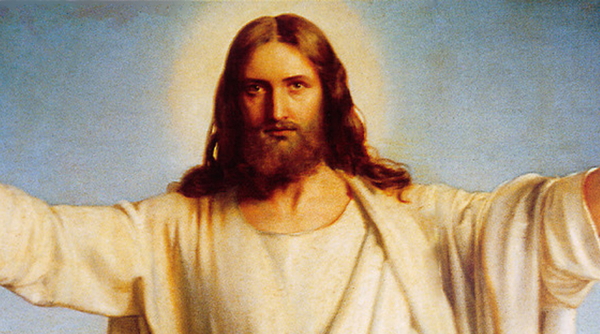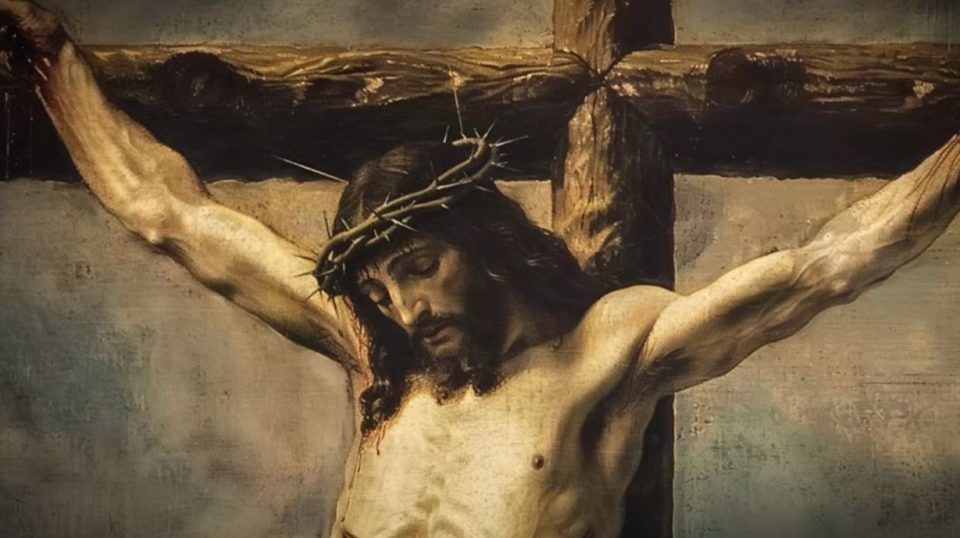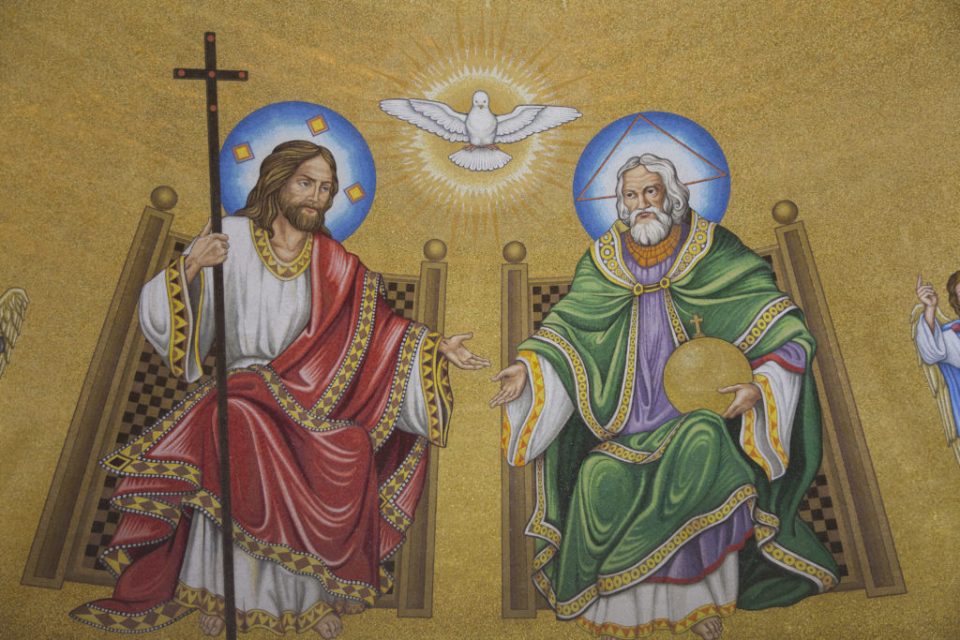Daily Reading & Meditation: Saturday (July 6)

Magisterial Liberalism, Ed Condon
July 5, 2019
Saint of the Day for July 6: St. Maria Goretti (Oct. 16, 1890 – July 6, 1902)
July 6, 2019
“The day will come when they will fast”
Author Don Schwager – Scripture: Matthew 9:14-17
14 Then the disciples of John came to him, saying, “Why do we and the Pharisees fast, but your disciples do not fast?” 15 And Jesus said to them, “Can the wedding guests mourn as long as the bridegroom is with them? The days will come, when the bridegroom is taken away from them, and then they will fast. 16 And no one puts a piece of unshrunk cloth on an old garment, for the patch tears away from the garment, and a worse tear is made. 17 Neither is new wine put into old wineskins; if it is, the skins burst, and the wine is spilled, and the skins are destroyed; but new wine is put into fresh wineskins, and so both are preserved.”
Meditation: Which comes first, fasting or feasting? The disciples of John the Baptist were upset with Jesus’ disciples because they did not fast. Fasting was one of the three most important religious duties, along with prayer and almsgiving. Jesus gave a simple explanation. There’s a time for fasting and a time for feasting (or celebrating). To walk as a disciple with Jesus is to experience a whole new joy of relationship akin to the joy of the wedding party in celebrating with the groom and bride their wedding bliss.
A time to rejoice and a time to mourn
But there also comes a time when the Lord’s disciples must bear the cross of affliction and purification. For the disciple there is both a time for rejoicing in the Lord’s presence and celebrating his goodness and a time for seeking the Lord with humility and fasting and for mourning over sin. Do you take joy in the Lord’s presence with you and do you express sorrow and contrition for your sins?
The closed mind that refuses to learn
Jesus goes on to warn his disciples about the problem of the “closed mind” that refuses to learn new things. Jesus used an image familiar to his audience – new and old wineskins. In Jesus’ times, wine was stored in wineskins, not bottles. New wine poured into skins was still fermenting. The gases exerted gave pressure. New wine skins were elastic enough to take the pressure, but old wine skins easily burst because they had become hard and had lost their ability to expand and stretch. What did Jesus mean by this comparison? Are we to reject the old in place of the new?
Treasuring the old and new wine of the Holy Spirit
Just as there is a right place and a right time for fasting and for feasting, so there is a right place for the old as well as the new. Jesus says the kingdom of heaven is like a householder who brings out of his treasure what is new and what is old (Matthew 13:52). How impoverished we would be if we only had the Old Testament or the New Testament books of the Bible, rather than both. The Lord gives us wisdom so we can make the best use of both the old and the new. He doesn’t want us to hold rigidly to the past and to be resistant to the new work of his Holy Spirit in our lives. He wants our minds and hearts to be like new wine skins – open and ready to receive the new wine of the Holy Spirit. Are you eager to grow in the knowledge and understanding of God’s word and plan for your life?
“Lord Jesus, fill me with your Holy Spirit, that I may grow in the knowledge of your great love and truth. Help me to seek you earnestly in prayer and fasting that I may turn away from sin and willfulness and conform my life more fully to your will. May I always find joy in knowing, loving, and serving you.”
Psalm 85:9,11-13
9 Surely his salvation is at hand for those who fear him, that glory may dwell in our land.
11 Faithfulness will spring up from the ground, and righteousness will look down from the sky.
12 Yes, the LORD will give what is good, and our land will yield its increase.
13 Righteousness will go before him, and make his footsteps a way.
Daily Quote from the early church fathers: No need to fast in the presence of the Bridegroom, by Hilary of Poitiers (315-367 AD)
“The Pharisees and John’s disciples were fasting, and the apostles were not. But Jesus answered them in a spiritual way and indicated to John’s disciples that he was a bridegroom. John taught that all hope in life lay in Christ. While he was still preaching, however, his disciples could not be received by the Lord. Up until the time of John, the law and the prophets prevailed, and unless the law came to an end, none of them would subscribe to faith in the gospel. The fact that he said there was no need for his disciples to fast as long as the bridegroom is with them illustrates the joy of his presence and the sacrament of the holy food, which no one need be without while he is present, that is, bearing Christ in the light of the mind. But once he is gone, Jesus says that they will fast, for all those who do not believe that Christ has risen will not have the food of life. By faith in the resurrection, the sacrament of the heavenly bread is received. Whoever is without Christ will be forsaken, fasting from the food of life.” (excerpt from the commentary ON MATTHEW 9.3)
Meditations may be freely reprinted for non-commercial use – please cite: copyright (c) 2019 Servants of the Word, source: www.dailyscripture.net, author Don Schwager
Scripture quotations from Common Bible: Revised Standard Version of the Bible, copyright 1973, and Ignatius Edition of the Revised Standard Version of the Bible, copyright 2006, by the Division of Christian Education of the National Council of the Churches of Christ in the United States of America. Used by permission. All rights reserved. Citation references for quotes from the writings of the early church fathers can be found here.
Go to | Daily Reading & Meditation Index |
The Daily Scripture Readings and Meditations is in need of on-going development to expand resources and to reach people around the world. If you would like to contribute, you can make an online donation. |




